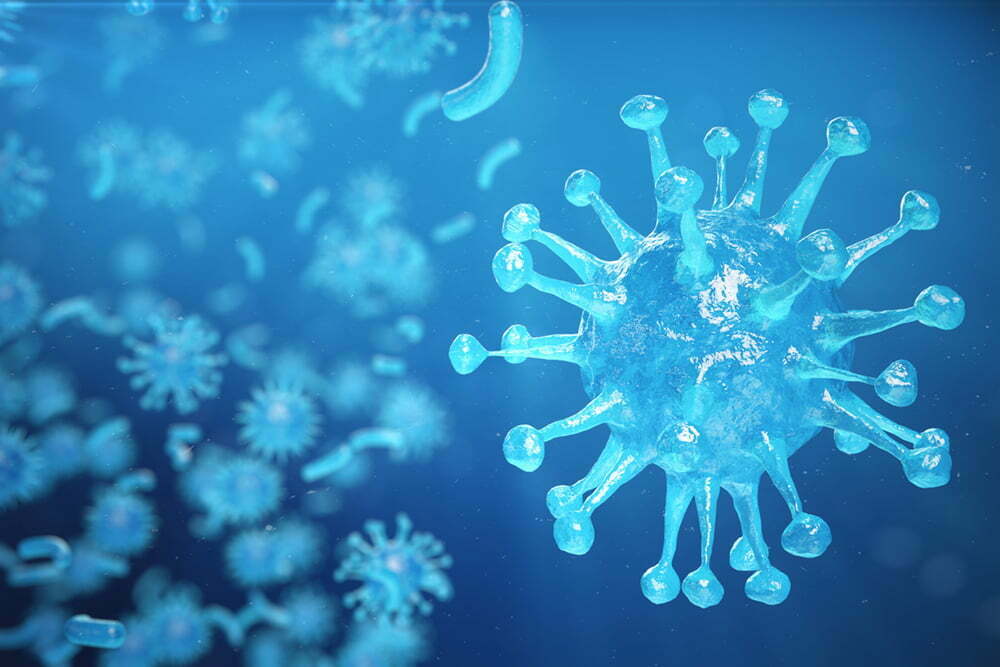The science of genomics and the benefits of understanding our DNA are now well established in the medical, sports and health industries. A new area that is gaining some interest and notoriety is within the corporate world and improving health in the workplace.
So, the question today is, “Can a DNA test help reduce employee absences?” First, we need to look at what a DNA test can offer by way of information to help improve your general health and wellbeing.

The Blueprint for Life
DNA provides our basic blueprint for life and is shaped like a twisted ladder.
This twisted ladder is called the double helix and is made up from 4 nitrogen bases: Adenine (A); Thymine (T); Guanine (G); and Cytosine (C). These form structures called nucleotides within our DNA, which are called genes.
Genes make proteins that encode and build a variety of things from hair, skin and organs to which eye colour you have.
We have roughly 25,000 genes, some containing a few hundred letters and others contain millions. Humans have the same genes, just that the variation of those genes will be vastly different.
Individual variations hold the key to how you absorb and process certain foods and vitamins, to how you individually respond to exercise, stress or sleep.
Unlock Your Genetic Makeup
Unlocking your genetic code and discovering what makes you unique may hold the key to becoming a fitter, healthier and ultimately happier you.
We focus on two of the many areas which can be analysed with a Muhdo DNA test, which largely play into each other to improve your health by reducing your risk of getting a cold, or possibly flu.

How We Absorb Nutrients
As mentioned above, we all have tiny variations in our genes which allow us to absorb the nutrients (vitamins/minerals) within our food.
For example, let’s take a look at the conversion of beta-carotenes (found in carrots) to the usable form of Vitamin A.
Vitamin A contains more than just a single nutrient. It includes a broad group of related nutrients, each providing us with different health benefits – and they come in two forms:
- Retinoids consist of retinol, retinal, retinoic acid, and retinyl esters and can be found in animal sources.
- Carotenoids consist of a larger family, which include two subcategories – Carotenes and Xanthophylls that branch off further into a variety of other elements such beta-carotenes and astaxanthin, which can be found in plants.
The two forms aren’t just chemically different; they also provide us with different types of health benefits. Your genetic variation of the gene BCO1 will affect your ability to convert beta-carotene from plants into retinol effectively.
Retinoids and animal sources already contain the active form of Vitamin A, and thus conversion is not needed. If you are following a vegan/plant-based diet, you may have a possible Vitamin A (Retinol) deficiency.

A Healthy Immune System
A healthy immune system is critically important to us, as every minute of every day your body is either under attack from bacteria and viruses or producing Reactive Oxygen Species (ROS), also referred to as free radicals.
Research shows that free radicals cause oxidative stress and damage your DNA, which can lead to ageing and other underlying diseases, including cardiovascular disease, dementia, diabetes, and premature ageing. Free radicals also play a role in the development of cancer.
Your body produces antioxidant enzymes which remove the ROS. Genetically, not everyone can produce good levels of these antioxidant enzymes and are at risk of increased oxidative damage.
Your body’s own antioxidant enzymes are far more powerful than any antioxidant supplement. In order to decrease oxidative stress, you need to enhance your ability to produce these antioxidant enzymes.
Again, a DNA test can be an extremely useful tool to better ascertain as to whether your antioxidant genes have slightly impaired function. Here’s what you need to do to improve them.
A Good Night’s Sleep
Here, we apply the same logic to how you sleep, deal with stress and your ability to fight off any bugs floating around the office.
Getting a good night’s sleep has many health connotations associated with it and understanding your genetic predispositions can help shine some light on any issues that you may have.
Our genetics play a role in the development of sleep disorders, quantity and quality of sleep, and if we are more likely to stay up late, get up early, or have naps, etc. For example, individuals who are predisposed are more likely to be night owls who have trouble falling asleep.

Now Mix the Two Genetic Variations
People who have a deficiency of Vitamin A may face difficulties in trying to get to sleep.
This is because melatonin, a sleep hormone which is responsible for signalling darkness to the body and regulating daily physiological rhythms, is hugely affected by Vitamin A. Deficiency in Vitamin A causes a reduction in the gene AANAT, resulting in a decrease of melatonin levels.
So, you can see how your genes act as a community, as if you have trouble sleeping you might firstly being known as a “Night Owl”. This trait will then be magnified if you have an “Increased Risk” of a deficiency of Vitamin A.
You can quickly see how these examples can affect just one aspect of your day-to-day life, which is crucial to keeping you fit and healthy.
If you are having certain issues at work, such as keeping up energy levels, productivity or picking up the latest office cold, then understanding what makes you tick at the genetic level may hold some of the answers as to why.

